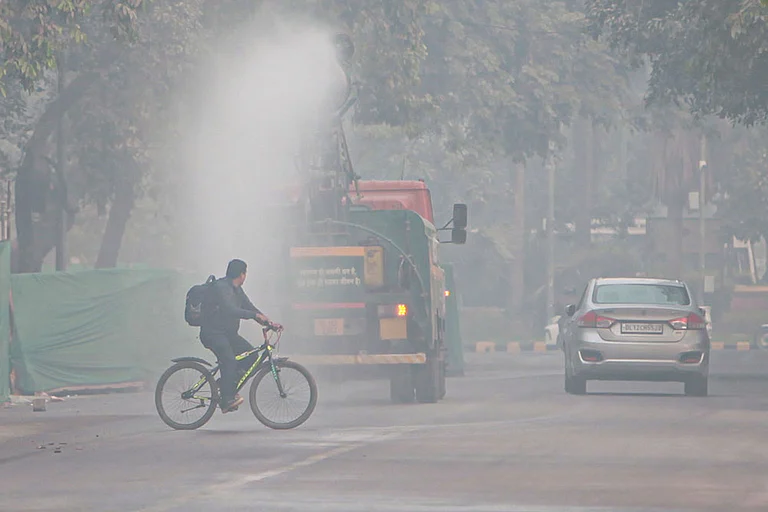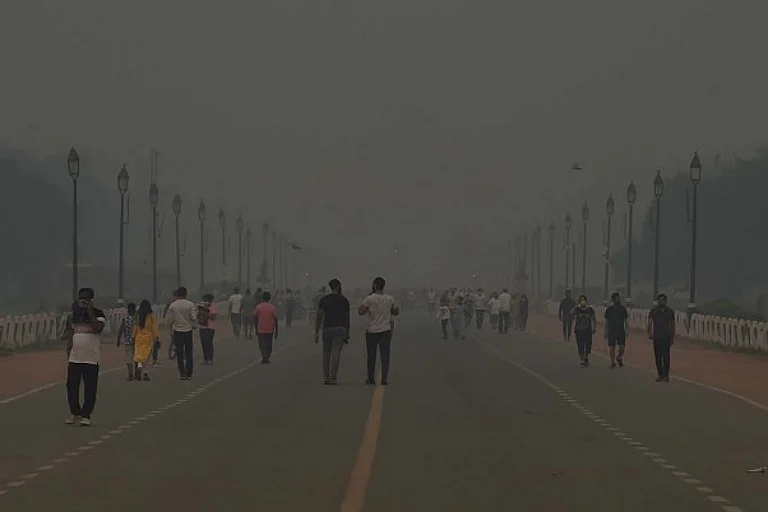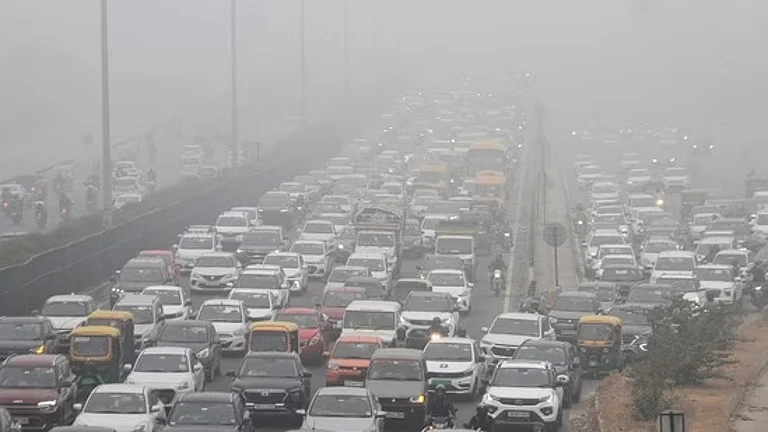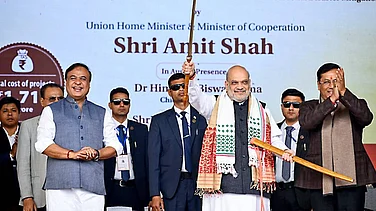
Mumbai's AQI plunges to 263 (unhealthy) on November 7; Parel-Bhoiwada (320), Deonar (319), Colaba (318) worst affected
Thick smog obscures the skyline despite clear skies; PM2.5 concentrations rise sharply after a brief post-monsoon improvement.
BMC issues 30-day ultimatum to 1,200 real estate companies to install AQI sensors at construction sites; 550 already compliant
Construction dust identified as major pollution contributor; LED boards to display real-time AQI data at project sites.
Mumbai woke Friday morning to a dense smog layering the city despite forecasted clear skies, marking a sharp deterioration in air quality within just days of improvement. The overall Air Quality Index recorded at 263, placing the city in the 'unhealthy' category, a significant fall from the moderate readings observed earlier this week following post-monsoon weather patterns. Bandra-Kurla Complex, the city's financial hub, appeared shrouded in haze, with residents reporting visibly poor air quality despite sunshine. This rapid decline reflects Mumbai's vulnerability to atmospheric stagnation and highlights the importance of pollution monitoring as construction activities accelerate post-monsoon.
Area-Wise Air Quality Analysis
Central and eastern Mumbai locations recorded the worst air quality readings on November 7. Parel-Bhoiwada topped the list at AQI 320 (severe), followed closely by Deonar (319), Colaba (318), Vile Parle West (313), and Bandra-Kurla Complex (310), all exceeding 300 and indicating severe particulate pollution. The western suburbs showed relatively better conditions, with Kandivali East recording the cleanest reading at AQI 93 (moderate). Other western areas, including Mankhurd (140), Borivali East (163), Bhandup West (173), and Malad West (173), fell within the 'poor' to 'unhealthy' range, indicating widespread deterioration across the metropolis. This spatial variation reflects localized pollution sources, including construction dust, vehicle emissions, and industrial activities concentrated in eastern Mumbai.
BMC's AQI Monitoring Initiative and Construction Dust Controls
To combat construction-related pollution, the Brihanmumbai Municipal Corporation issued an ultimatum requiring all 1,200 real estate companies operating in Mumbai to install air quality monitoring sensors at project sites within 30 days. Currently, approximately 550 developers have installed sensors, while another 200 are in the process of acquiring them, leaving significant compliance gaps. These hyperlocal sensors provide real-time AQI data displayed on LED boards at construction sites, enabling authorities to verify whether dust mitigation regulations, including water sprinkling and debris covering, are followed. The BMC's Mumbai Air Pollution Mitigation Plan identified construction dust as a major pollution contributor. Non-compliant firms face penalties after the November deadline, with BMC and Maharashtra Pollution Control Board deploying ground staff across 24 municipal wards. Forecasts indicate Mumbai's AQI will remain in the moderate to unhealthy range over the coming week, with no significant relief expected until seasonal winds strengthen later in November.




























